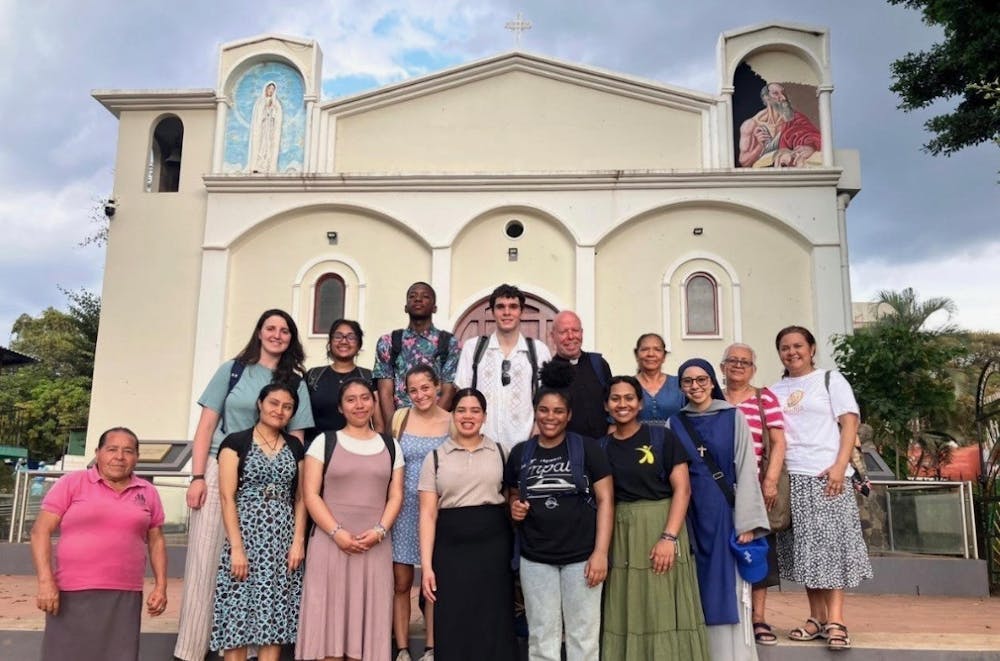Seton Hall’s Division of Volunteer Efforts (DOVE) offers students the opportunity to leave the comfort of South Orange and serve those experiencing extreme poverty.
DOVE provides volunteers for several programs and sends them to many locations, including Pennsylvania and West Virginia, but what makes this mission to El Salvador’s San Miguel and El Mozote such a unique experience?
DOVE student workers Wendy Cardona Herrera, a senior business administration and marketing major; David Silva, a senior political science major; and Brandon Strohl, a junior psychology major, went on a trip to El Salvador this past year and shared their life-changing experiences.
It all starts with an application.
“First you need to apply to go, so there's about maybe like a 15 minute application available to all students,” Silva said.
Any student can go on this trip, but DOVE likes to know who they are working with, so their application asks questions about the foundations of the trip: volunteering, cross-cultural communication, and faith.
“[The application] asks you about any volunteering you’ve done before,” Silva said. “If you have any experience speaking Spanish, even though it's not required. It talks about faith aspects, you don’t have to be religious to go on the trip, but the things that DOVE work into the trip are part of the Catholic faith.”
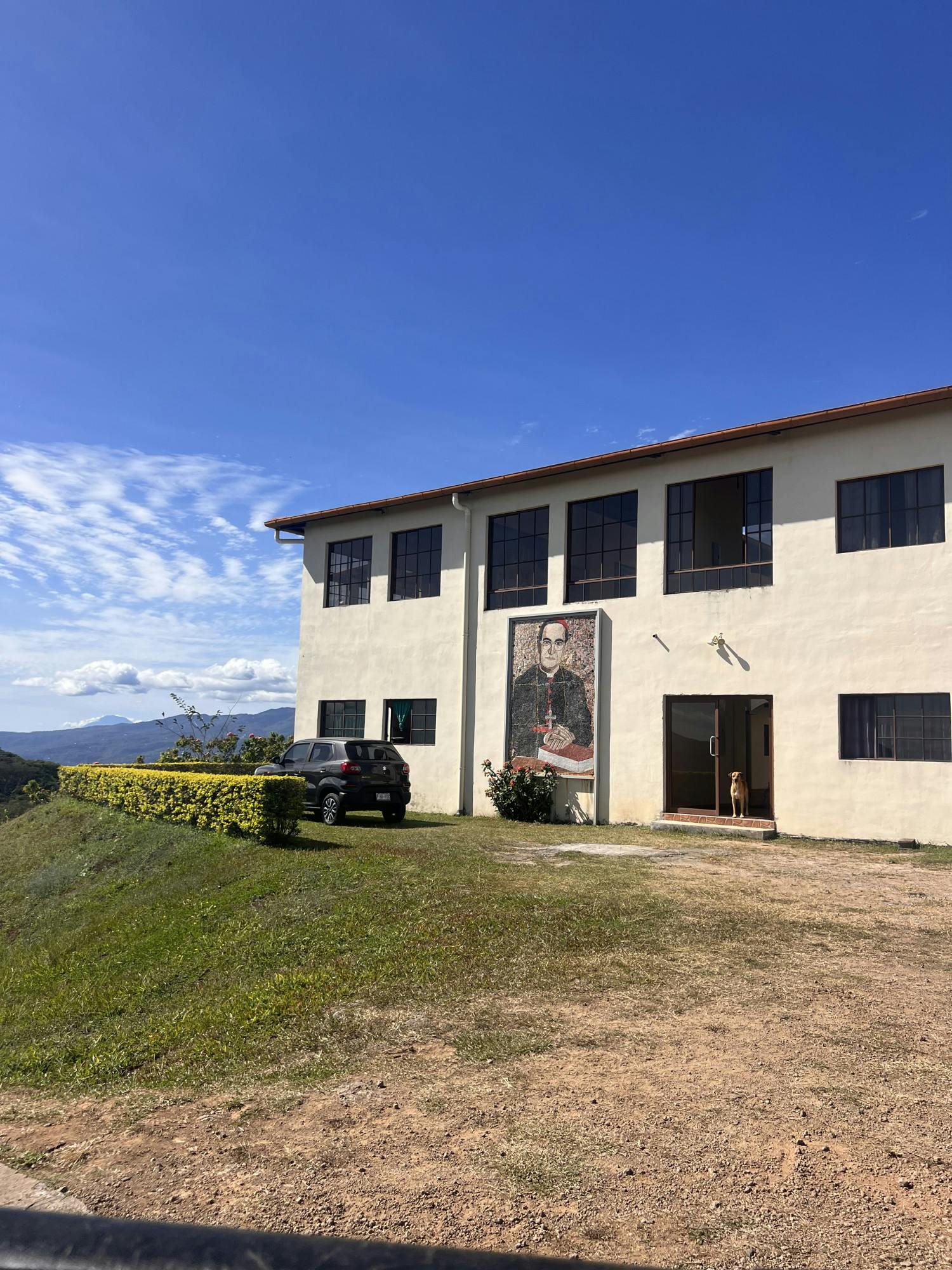
Though none of these foundations are requirements, differing levels of prior experience shape the experience in El Salvador.
Cardona Herrera is a Spanish speaker who found this to be a helpful skill during the trip.
“I think because they speak Spanish, I was able to connect with the people who lived there a lot more,” Cardona Herrera said. “Not needing to have somebody else next to me translating, I think that helped me build up a bigger and stronger connection with the people that I was able to meet.”
Following SHUs Catholic identity, the trip is built around faith.
“We stay with the sisters down there and we kind of live with them and eat with them and then we will go out on house visits,” Strohl said.
The days start and end with prayer and reflection. Cardona Herrera recounts starting the day with prayer.
“We woke up super early at 7 a.m.,” Cardona Herrera said. “We all sat around the table with a little book that they gave us. We did our morning prayer and a reflection, like what we wanted to get out of the day.”
The trips are led by people who have gone before, and they lead the group reflections, according to Silva.
“Returning students, they have the responsibility of leading, like, our reflection time at night and basically we talk about our whole experience as the day went by,” Silva said. “So at nighttime, we just talk about any, like, emotions that we felt, something that stood out to us.”
These nightly reflections, based in faith, help foster a strong connection between the volunteers on the trip by allowing them to openly talk about any arising emotions.
“I think this was the biggest part because, because of this night reflection, everybody was able to be super vulnerable with each other,” Cardona Herrera said. “And we were sharing experiences and things and, like, feelings that you don't usually share on your day to day.”
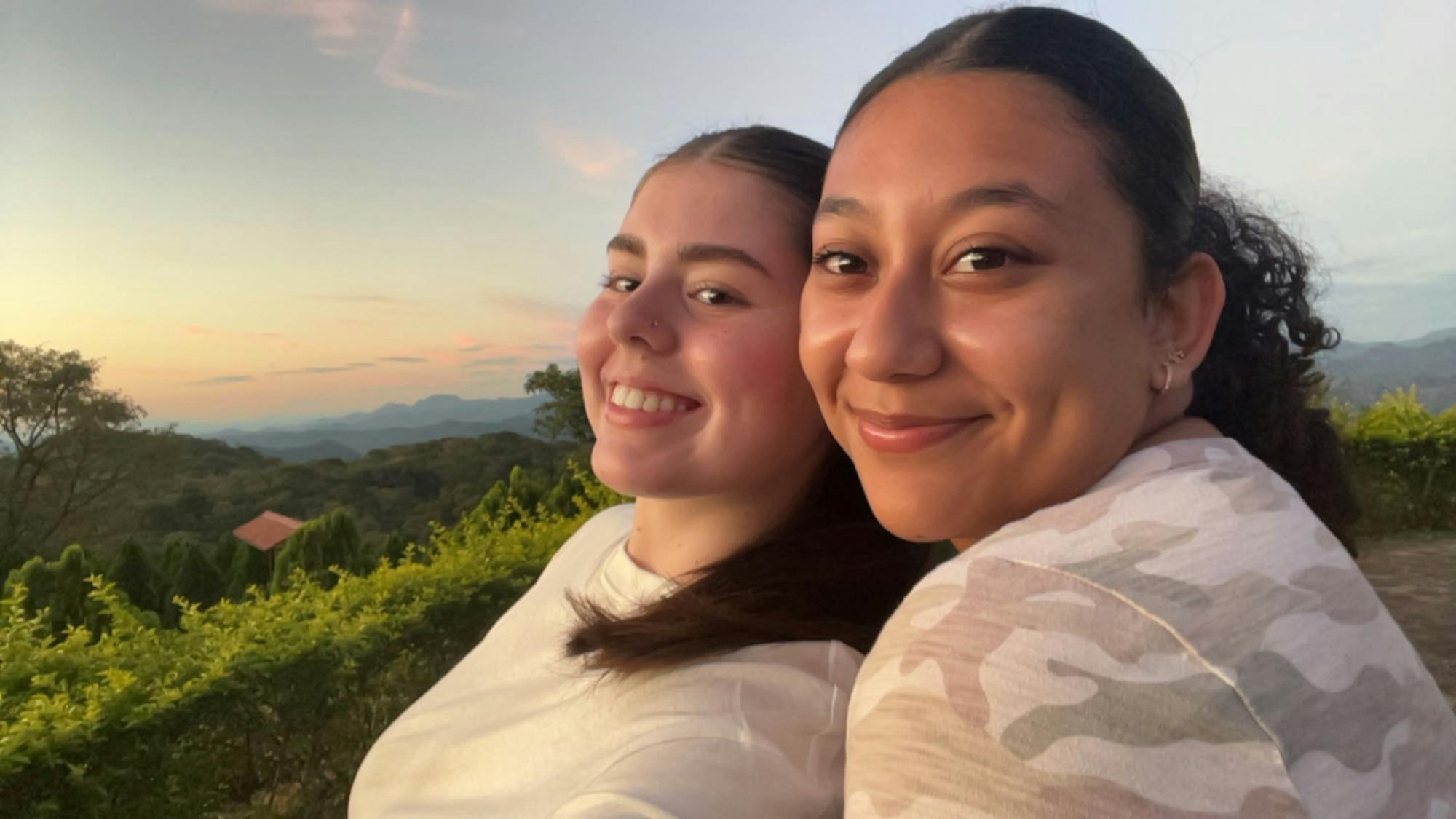
Strohl also feels as though he made a bond with some of the volunteers over the course of the trip.
“I definitely formed stronger relationships with some of the volunteers that I was with because we spent all week together,” Strohl said.
Though the morning and nights are centered around faith, the days are centered around community and helping as much as the volunteers can, where they can.
“If you go on one of the mission trips and you feel like you're like ‘all I did was talk to like four people or, like, put in a few nails in this house that we were working on’ yeah, but just the intention and you doing that? It’s very important,” Strohl said.
Cardona Herrera said the people the volunteers were helping were in their 60s.
“So how do these people go up and down a hill? That I struggle with and I'm 20,” Cardona Herrera said. “We were singing to them and, like, bringing stuff to them and just by doing that they were so grateful that they had, like, food for the week.”
Through being surrounded by these people and their community, volunteers learned more about what life looks like for those in poverty. They do not just struggle economically, but also with loneliness.
“Poverty is not only materialistic, but emotional. A lot of these people are very alone,” Cardona Herrera said. “They don't have access to people nearby because most of these houses are very separated by hills.”
Silva echoed Cardona Herrera’s sentiments.
“There was one kid, and he told me that he wanted to be a pilot when he grew up, but he had never been out of his town,” Silva said. “He asked me if I was going to come back soon, and I said, ‘I have to come back, but in a year.’”
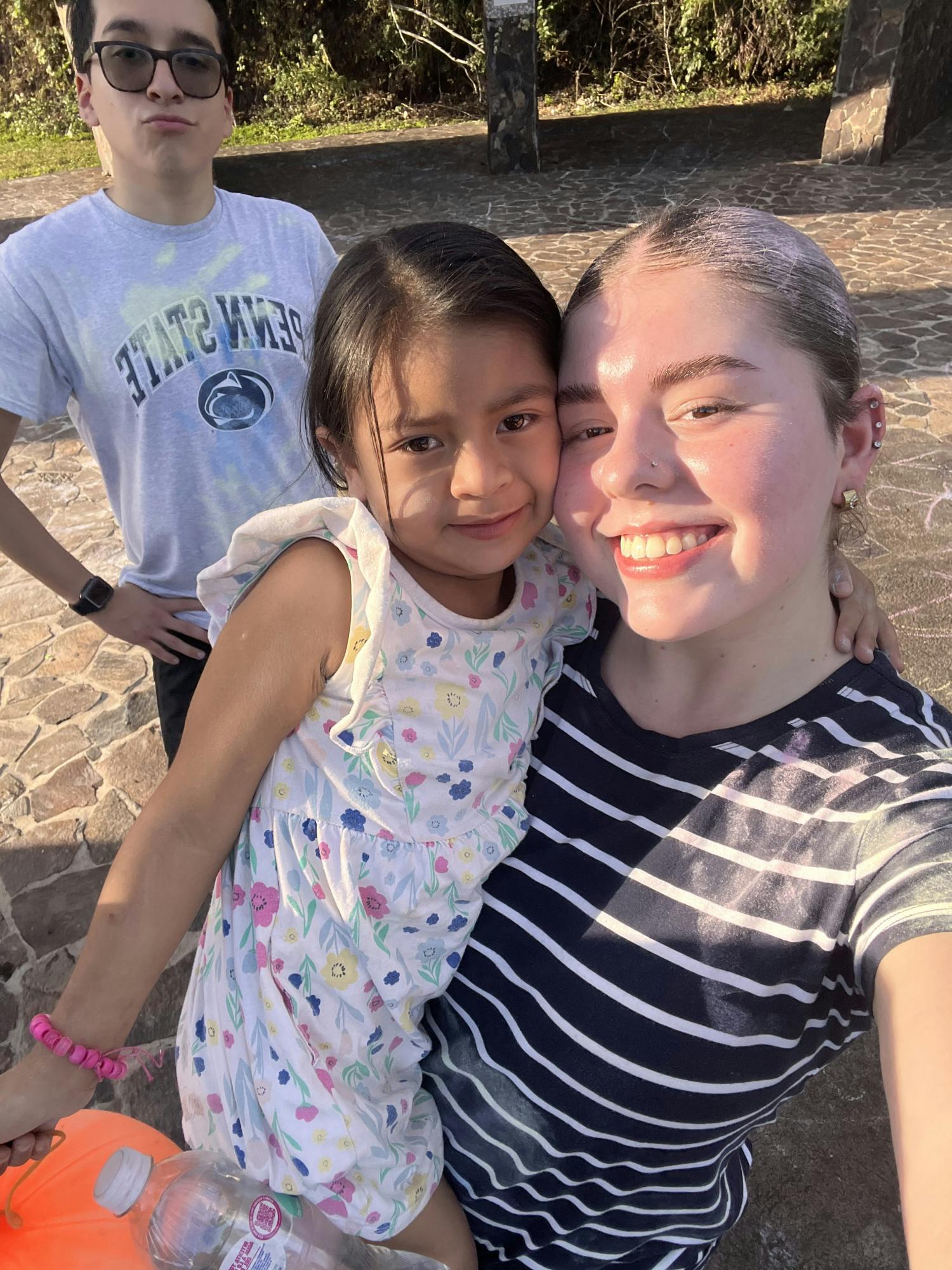
All three volunteers are looking forward to participating in this trip again after their first life-changing experience.
Strohl said he loves the mission trips.
“It's very fulfilling, it's very fun,” Strohl said. “Mission trips to me are like a vacation. I get away and I get to do something meaningful and helpful. It's not always easy, it's not like you're staying in a luxury hotel. Like, you actually have to really put in some work.”
They aren’t always easy, but, to Strohl, “it’s worth it.”
Silva also had similar remarks.
“It was beautiful. I can't wait to go back. I really miss it,” Silva said. “It makes you super grateful and also, like, brings you down to earth.”
DOVE urges people to leave their comfort zone and serve, and, by doing so, discover more about the world and themselves.
Cardona Herrera found the trip to be life-changing.
“I was able to meet a family and that family I think about every single day. It really impacted the way I see, and how I live now,” Cardona Herrera said. “This trip completely changed my life because I really do see a change in myself physically, emotionally, and mentally.”
Silva also noticed changes in himself after going on the trip.
“It's made me more patient. I think before I used to get just, like, so stressed out about, like, little things,” Silva said. “Now it's like, ‘okay, it broke, like, I can fix that. It's not a big deal.’”
Stepping out of South Orange and seeing international issues changed how these volunteers approach life, and they cannot help but promote that experience for everyone else with the ability to serve.
“A lot of people want to help and care about social issues and care about people that are struggling, but [serving] actually bridging that gap,” Strohl said. “Doing it is a different thing entirely.”
Silva said students should consider going on a DOVE trip.
“If no one has thought about it before or given it, like, any thought, definitely just apply and see what happens,” Silva said.
If a student has never volunteered before, Cardona Herrera said this is a great chance for them to start.
“I think they would fall in love with it because you do see the faith that these people have and how grateful they are for just us talking to them,” Cardona Herrera said.
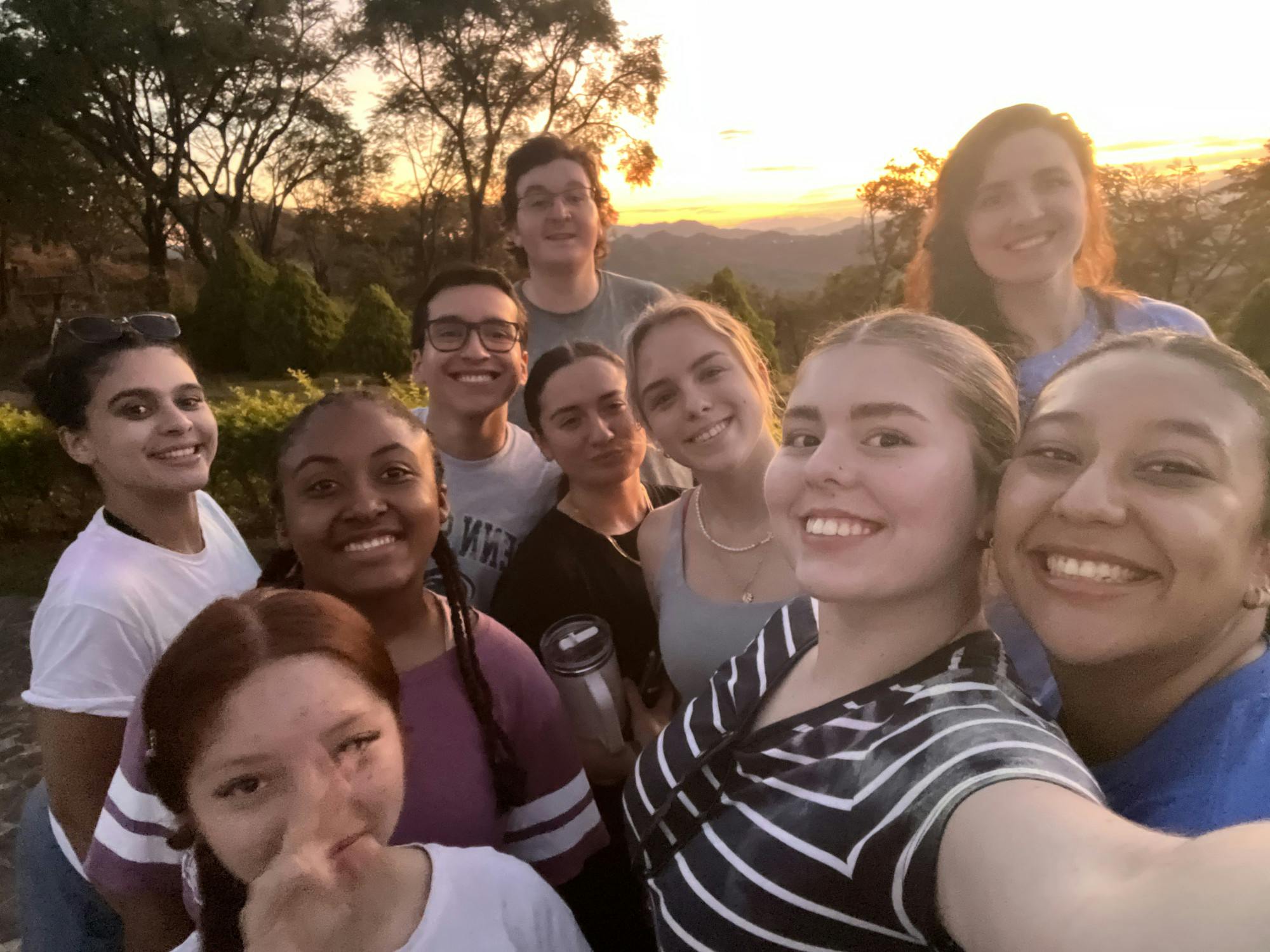
Kaitlyn Campeau is a writer for The Setonian’s Features section. She can be reached at kaitlyn.campeau@student.shu.edu.

